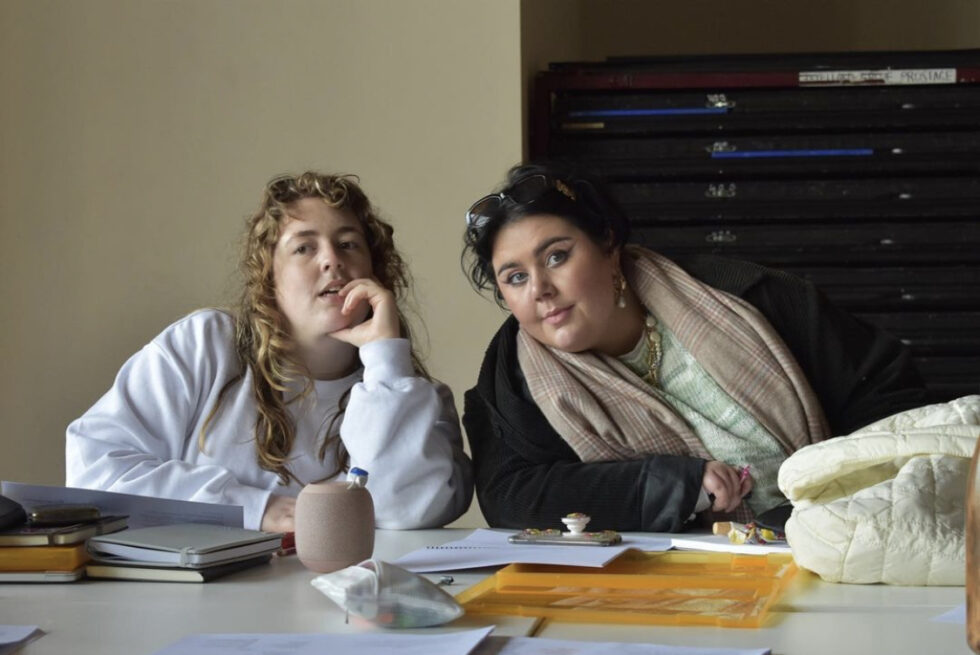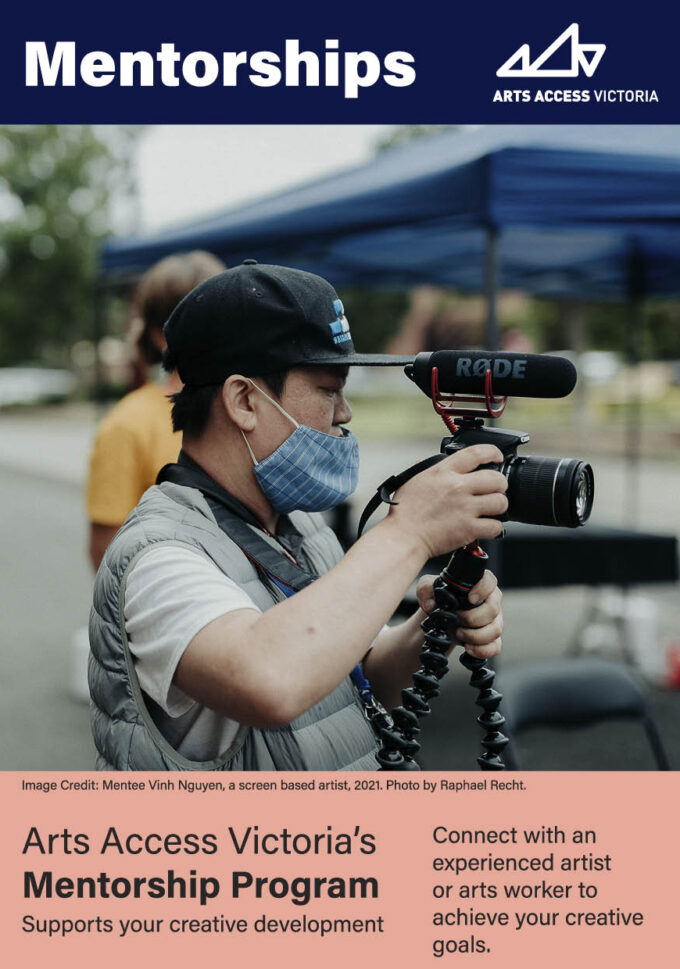Mentoring
Arts Access Victoria’s Mentorship Program supports your creative development. We connect you with an experienced artist or arts worker to achieve your creative goals. Mentorships are open to all levels of experience and all artforms. We are here to support your creative goals.
What can a mentorship do for you?
- Provide support and guidance in art making
- Introduce new ways of working and approaching art
- Provide you with feedback
- Share and work on your ideas
- Support you to achieve your goals, both short and long term
- Build your artistic capacity
- Increase networking opportunities


